A New Dawn in Cancer Treatment In the rapidly advancing world of biomedical science, where artificial intelligence (AI) merges with molecular biology, a remarkable breakthrough has emerged—not from Silicon Valley or Europe, but from the rural heart of Assam, India. Leading this revolution is Dr. Rubul Mout, a research fellow at Harvard Medical School and
A New Dawn in Cancer Treatment
In the rapidly advancing world of biomedical science, where artificial intelligence (AI) merges with molecular biology, a remarkable breakthrough has emerged—not from Silicon Valley or Europe, but from the rural heart of Assam, India.
Leading this revolution is Dr. Rubul Mout, a research fellow at Harvard Medical School and Boston Children’s Hospital, who has pioneered the use of AI-designed synthetic proteins to transform cancer immunotherapy. His groundbreaking research promises to make cutting-edge treatment affordable and accessible worldwide.
How AI is Transforming Cancer Immunotherapy
At the center of this discovery lies the Notch signaling pathway, a vital communication system that guides stem cells into becoming specialized T-cells—the body’s most powerful cancer-fighting agents.
Traditional methods of producing T-cells are slow, costly, and complex, often requiring high-end labs and expensive infrastructure.
Dr. Mout’s solution introduces AI-engineered soluble proteins, known as Notch agonists, which mimic natural ligands to activate Notch receptors.
These synthetic proteins allow large-scale T-cell production in simpler conditions, potentially enabling even district-level hospitals to provide advanced cancer therapy.
The Science Behind the Breakthrough
Using the Rosetta protein design platform, Dr. Mout’s team created synthetic proteins from scratch. They discovered that a trans-binding design—where synthetic ligands engage multiple receptors—produced the most effective T-cell development.
Key Results:
-
Human stem cells successfully converted into active T-cells
-
Animal trials showed strong anti-tumor activity
-
Proteins proved stable, affordable, and easy to produce
This makes the therapy not only scientifically sound but also scalable for global use, including in low-resource settings.
From Rural Assam to Harvard
Born in Solpam village in Assam, Dr. Rubul Mout’s journey is a story of resilience, brilliance, and compassion. From humble beginnings, he has risen to global prominence, yet remains deeply connected to his roots.
Despite working at world-class institutions, Dr. Mout continues to write and communicate in Assamese, ensuring his people benefit from his achievements. His life is guided by a firm belief:
“Science must serve humanity, not stay confined to elite journals.”
A Vision Beyond Science
For Dr. Mout, this innovation is not just about technology—it’s about justice and empathy. He envisions a healthcare system where:
-
Cancer patients in rural India can access life-saving therapies
-
Government health missions like Ayushman Bharat integrate AI-driven solutions
-
Young students are trained in both AI and medical science
-
Science remains people-focused, not profit-driven
His work raises profound questions:
-
Can AI truly design hope through proteins?
-
Will technology remain guided by human empathy instead of commercial greed?
Dr. Mout answers with his commitment: AI with compassion can heal the world.
Author and Inspiration
Beyond science, Dr. Mout is also a renowned Assamese writer. His autobiography, Moro Eta Sapon Ase (2017), published by Purbayon Publication, has sold over 45,000 copies, becoming one of the bestselling Assamese books of all time.
The book continues to inspire thousands of students, proving that dreams from small villages can reach global stages.
Conclusion: A National Call to Action
As cancer continues to claim lives, Dr. Rubul Mout’s AI-driven proteins offer more than a cure—they offer hope, dignity, and time.
His work symbolizes a new India where:
-
Rural dreams shape global innovations
-
Science meets compassion
-
Healthcare becomes equitable and accessible
Dr. Rubul Mout stands as a beacon of pride for Assam and India, proving that the future of medicine can be built not only in labs but also in the hearts of those who dare to dream.




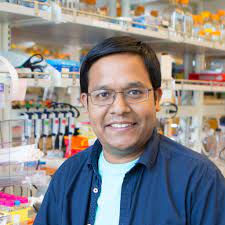

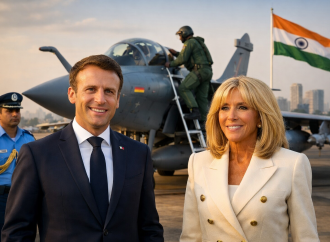

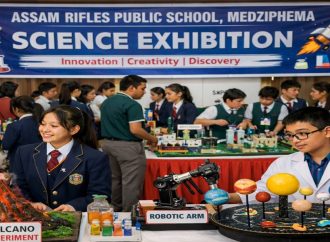
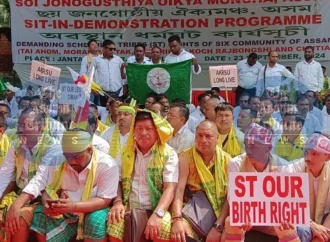




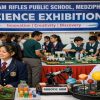
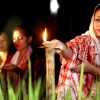

Leave a Comment
Your email address will not be published. Required fields are marked with *